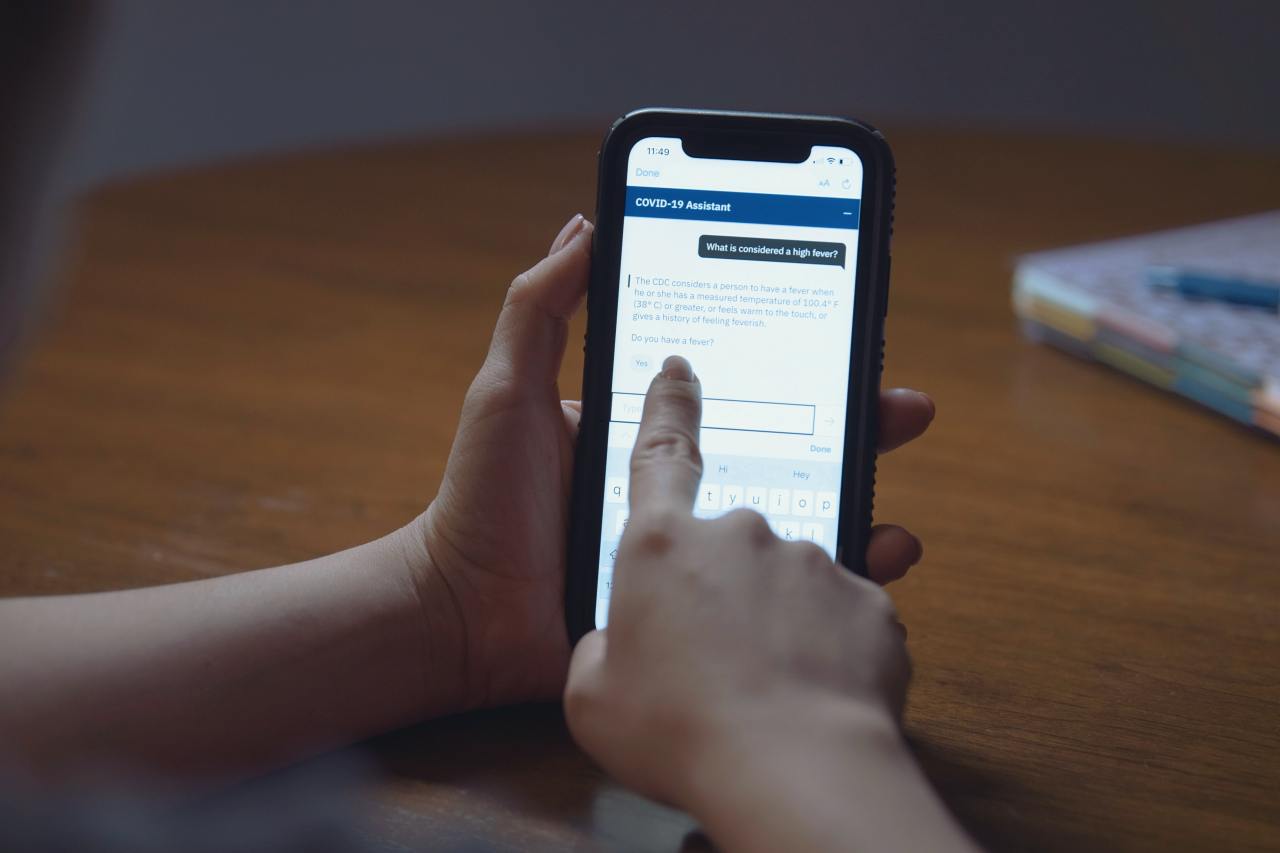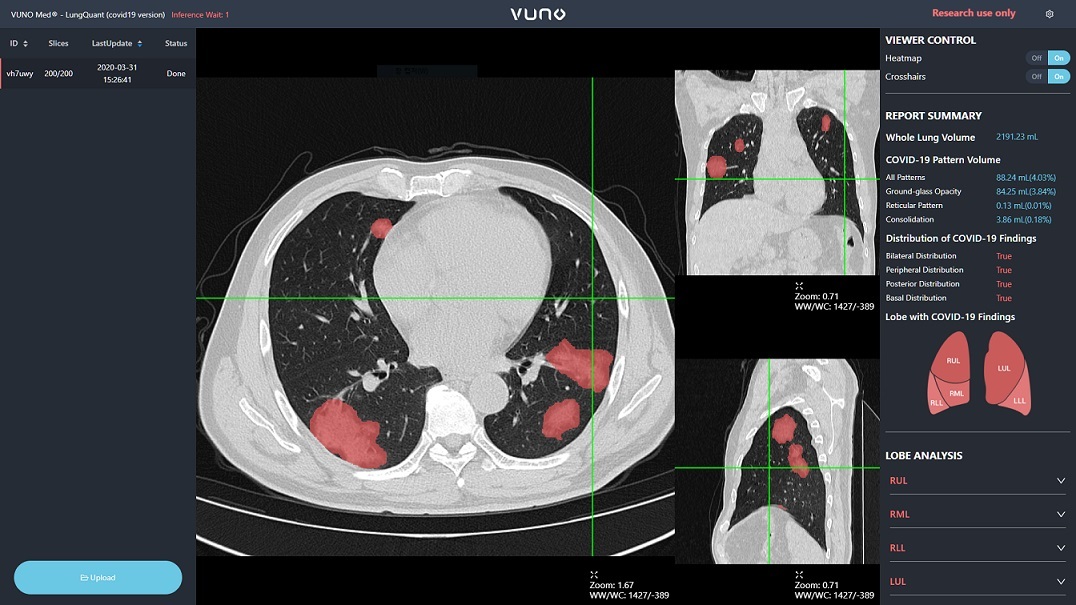Mobile & Internet
Tech firms mobilize AI capabilities to fight COVID-19
Artificial intelligence has a great chance to prove its worth in the ongoing global war against the novel coronavirus.
From garnering data about the pandemic to analyzing transmission patterns, providing information about prevention and diagnosing contamination, a variety of AI programs are being used to contain the virus spread and related treatments.
IBM, the world’s leading cloud platform and computing business, is mobilizing its AI and supercomputing capabilities to support governments’ and citizens’ efforts to fight the virus.
The US company has launched IBM Watson Assistant for Citizens, a public cloud-based virtual assistant system aimed at helping people search information about the COVID-19, such as symptoms, testing sites as well as current status of schools, transportation and other public services.
The platform, boasting IBM’s natural language processing and enterprise AI search capabilities, supports both chat and speech interfaces, and is pre-loaded to understand and respond to common questions about COVID-19, based on the latest Center for Disease Control information.
“IBM is taking years of experience in helping thousands of global businesses and institutions use natural language processing and other advanced AI technologies to better meet the demands of their constituents, and now applying it to the COVID-19 crisis,” said Rob Thomas, general manager at IBM Data & AI. “AI has the power to be your assistant during this uncertain time.”
The company said it is offering Watson Assistant for Citizens via the IBM Cloud available free of charge for at least 90 days, and will assist with initial setup. It will offer services in three languages including Korean.
 |
Korean players
In South Korea, AI-based voice assistants are playing a role in helping fight the virus.
AI speakers like Kakao Mini by the country’s largest mobile messenger company Kakao and Clova by the biggest portal business Naver are providing users information, such as the current status of mask stocks at nearby pharmacies, COVID-19 symptoms and updates on the number of infections.
“Regarding the coronavirus, questions asked by users on the Clova platform surged 12 times in February from the previous month,” an official at Naver said.
The company is currently working to compile statistics related to further increases in use of its AI platform in March.
The Seoul Metropolitan Government has adopted an AI system for monitoring self-quarantined people in the city. The AI system automatically calls the registered people under monitoring every day and check their health conditions, including the body temperature. The calls are made in different languages, including Korean, Chinese and English for foreigners in the country.
Similar AI call systems are in use in Seongnam City, Gyeonggi Province, and Jeonju in North Jeolla Province.
Korean telecom giant KT has formed a research alliance with domestic universities institutions in order to develop a model to predict possible transmission patterns of the COVID-19.
KT offers its bid data of mobility trends of people across the country and analyzes the data by using AI algorithms to detect inflows of infected people into the country and possible community spread.
Since 2016, the mobile carrier has contributed to preventing epidemics by launching its Global Epidemic Prevent Platform that utilizes its telecommunications big data.
“KT will do its best to effectively apply the research result to respond to the cross-border COVID-19 crisis,” said Kim Chae-hee, vice president at KT’s AI and big data business unit.
Also towing the use of AI in coronavirus combat measures are medical AI solution companies.
Vuno, PhenoMx, Lunit one after another released their AI systems for seconds-short lung scans for COVID-19 detection. All these AIs are yet to gain governmental authorities’ approvals for commercialization, and are pre-released for free for research purposes.
Vuno’s two solutions, VUNO Med LungQuant and VUNO Med Chest X-ray: COVID-19 Version are chest computed tomography (CT) image systems that are now free to use globally.
Vuno released the programs as cloud-based web services.
“These solutions are meant to be complementary to the RT-PCR gene amplification diagnostic test kits. The RT-PCR kits excel in accuracy of primary diagnosis, however, these AI solutions can be used to monitor the infected patients in all stages of illness to help discern their full recovery and prevent relapse,” said a Vuno official.
The Vuno solutions automatically detect lesions associated with COVID-19 and quantifies the degree of abnormality, given lung CT images and chest X-ray images.
The solution can be used at all stages, including screening suspected patients, observing the progress of confirmed patients, and retrospective studies, Vuno said.
Vuno’s solutions are used at health centers in Gangwon Province and Daegu Fatima Hospital in Daegu.
Other than Vuno, Myongji Hospital and its partner PhenoMx also said it has released its PhenoChest AI for free global use.
 |
Myongji Hospital’s CEO Lee Wang-jun, also the head of RT-PCR kitmaker Kaenseolob, plans to provide the AI solution as a package with the RT-PCR kit in the US.
According to PhenoMx’s CEO Kim Han-seok, the PhenoChest AI is designed to help medical professionals make fast decision on who among the coronavirus-positive to quarantine, hospitalize, or enter immediate treatment.
In any environment with internet, whether the files be DICOM, JPG, or BMP, anyone would be able to tell the virus infiltration rate, Kim said.
Lunit, another medical AI company, said its COVID-19 detection AI Lunit Insight CXR are being used to catch pneumonia or similar lung abnormalities in chest X-ray scans to assist medical professionals.
“There is a shortfall of radiologists worldwide, and these AI systems can assist doctors in place for where there is lack of manpower,” a Lunit official told a local media.
According to Lunit, the Lunit Insight CXR was used to analyze more than 3 million chest X-ray scans in 80 countries.
The use is most acitve in Brazil, at Prevent Senior Hospital in Sao Paulo, where over 3,000 patients had their CT scans run through the Lunit software for doctors to make medical decisions.
AI chipmakers
AI chipmakers are also contributing to the world‘s efforts to better understand the new virus.
Nvidia, the top graphic processing unit maker for gaming and autonomous driving, has asked PC gamers to use their powerful gaming PCs to help with the fight against the COVID-19 outbreak, by donating unused GPU clock cycles of graphic cards by downloading software program Folding@home to help improve people’s knowledge of coronavirus.
Since the gaming PCs come with powerful graphics cards that are ideal to processing huge amounts of data in projects, the GPU maker has come up with the idea of utilizing it.
The number of downloads of the program reached 700,000 as of Wednesday, helping crack the code on the coronavirus, the company said.
Intel, the world’s largest provider of core processing unit, said Intel is applying its supercomputing technology and software expertise to help better understand and combat the virus.
The US chipmaker said it has teamed up with PC maker Lenovo Intel and Beijing-based BGI Genomics to accelerate the analysis of genomic characteristics of COVID-19 by donating a dedicated supercomputer cluster to the Chinese institution.
The collaborative work is aimed to further advance the capabilities of BGI’s sequencing tools to help scientists investigate transmission patterns of the virus and create better diagnostic methods, according to the tech mogul.
By Song Su-hyun and Lim Jeong-yeo (song@heraldcorp.com) (kaylalim@heraldcorp.com)








